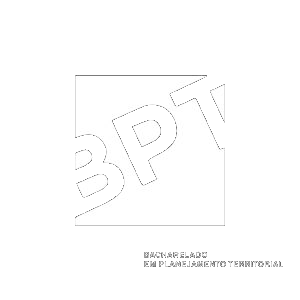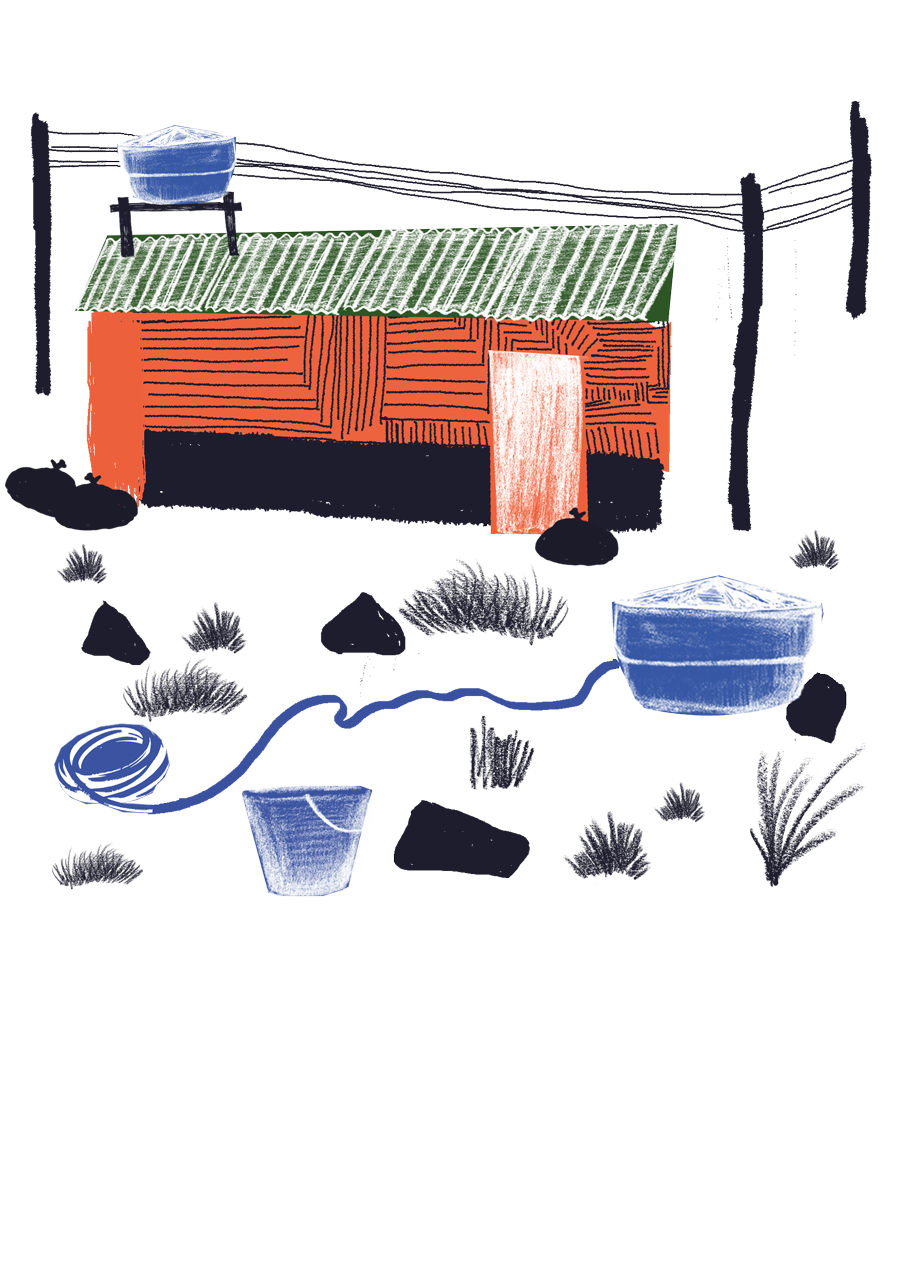
Terra Prometida, Aricanduva district, Aricanduva Sub prefecture
Dona Raquel is 33 years old, married, brown, unemployed. From Alagoas, arrived in São Paulo at the age of 31 and has lived in the community for 3 years, as she couldn’t pay her rent anymore. She lives with 4 people. Her home is not yet connected to the sewer network. Despite having a water tank of 150 liters, when water is lacking, fetch it from the spout. After installing the water box in her house, she longer had to take a bath in a bucket and mug.
“I would like the public agencies to start listening to us and to allow us to pay water and electricity with dignity.”
“We made a water network on our own. And light too. ”
“Before, when we were without water here, we used to go there at the spout, in the square. We took a bucket of water and a bottle. To make food, to bathe, to wash clothes. Today the water comes through the pipes. ”
Dona Ziona is 32 years old, single, brown, works as a day laborer. Born in São Paulo, she has lived in the community for 4 years with 5 more people. Due to unemployment, she was no longer able to pay the rent. She knew the occupation because her brother already lived in it. When her house is short of water, she can borrow two or three buckets for the neighbor, as there is no water tank at home. She washes her clothes at dawn because the water comes out stronger.
Dona Maria, 40, single, black, works as an inspector of the association, in addition to being the owner of the home. Born and raised in São Paulo, she has lived in the occupation for 2 years and lives with 9 more people. She arrived at the Terra Prometida because she was unemployed and was no longer able to pay rent. Her house does not have a water tank and when water is missing, she uses bottles and buckets to store water that collects from the spout. She takes a shower when there is water, when there is no water, fetch water from the spout, heat it up and take a bath with a bucket and mug.
“This water is irregular, but I don’t know where it comes from. But it’s from the public network. ”
“We pull it into the house. Residents who did. ”
“Every day at night there is never water”.
“Every now and then I buy water for the children to drink.”
“When we run out of water, we end up without running out of a drop of water even on the tap like that.”
“Since we exist as a human being, water is our demand, as a human being. Demand for human dignity in truth. ”
“Nobody survives without that access.”
“And just before the pandemic too, we already had a water problem.”
Leadership, Dona Joana, a 36-year-old black woman, social worker, has been a member of the association for 4 years and works in political articulation helping residents to organize themselves in political articulation. She explains that during the occupation, access to the infrastructure is informal, despite having made a request for water from Sabesp. All the networks were self-built and most houses do not have a water tank. She believes that water is one of the main demands, as well as housing, in the fight for human rights. That water and sewage are fundamental for health and, therefore, have demanded the regularization of infrastructure. As they are an occupation, there were no actions by Sabesp or the City Hall to guarantee access to water for all.
The Terra Prometida occupation is a young occupation that has existed for approximately 4 years and is located within the Subprefecture of Aricanduva, in the district of Aricanduva. It was created on a voluntary basis by people who at that time were being evicted from their homes and had nowhere to go. Today it is a community with approximately 300 households and 1200 people, with 60% of the houses built in masonry and the remaining 40% still in wooden shacks. The community was built in three stages. The first and oldest stage, includes alleys 1 and 2 and are the two main streets. The second stage is called “Morumbizinho”, because all the houses are made of masonry and the third stage is the most recent.
The infrastructure in the Terra Prometida occupation is all provided informally. All networks, connections and water, sewage and light inspection boxes were made by informal connections, by the residents. All buildings and networks, both housing and infrastructure, were self-built and connected to the public network of the neighborhood. Most houses do not have a water tank, so when there is a lack of water in the network, they store their water in bottles or in buckets and gallons brought from a spout located on the other side of the community. All respondents confirmed having a complete bathroom with shower, sink and toilet inside their homes, but when water is lacking, the solution is the bucket and the mug.
To guarantee water at home, residents report solidarity among neighbors during times of water shortage. Washing clothes at strategic times and days, buying gallons of drinking water to drink, especially for cooking and for children, fetching water from the spout with large bottles and borrowing water from a neighbor who has a water tank are some of the strategies that residents use.
The main problems today in the occupation related to water are its intermittency, the volume available and the difference in pressure with which it arrives. The lack of public assistance in implementing a safe network that guarantees basic sanitation and universal access to water for the population is at the root of the problem.
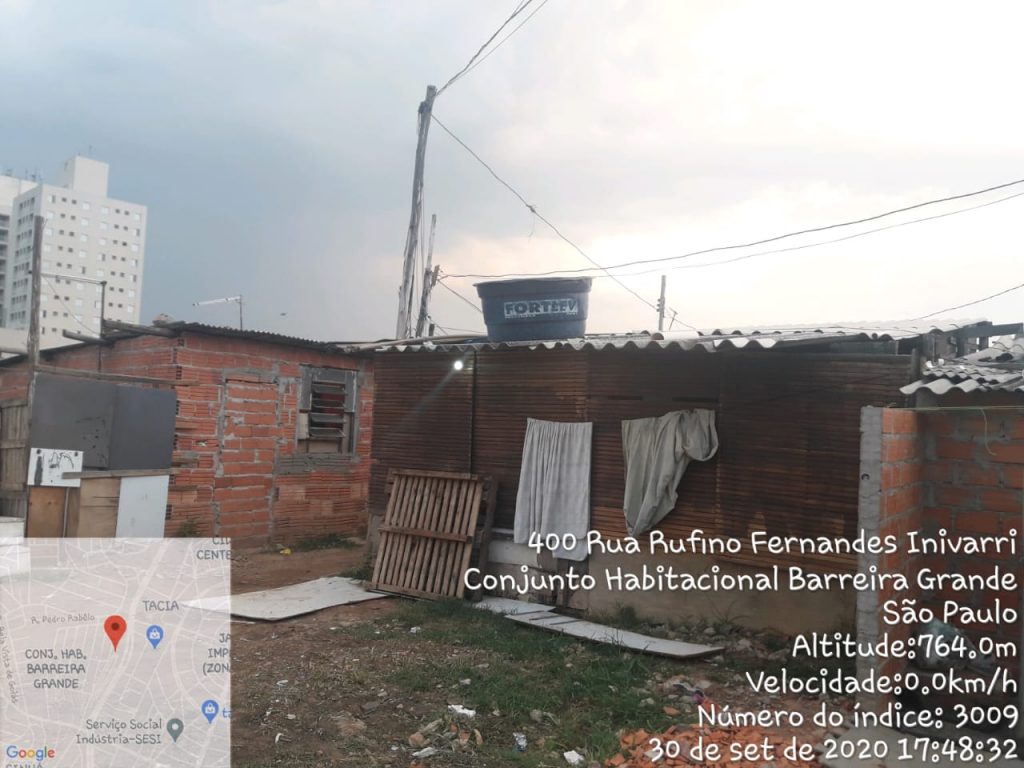
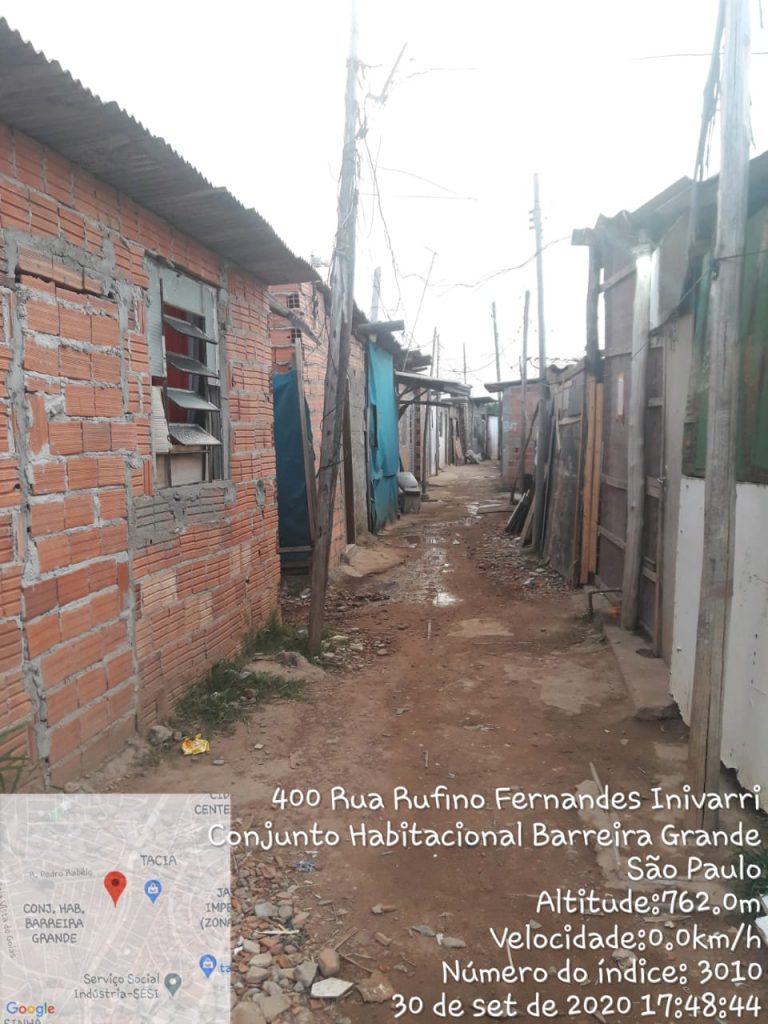
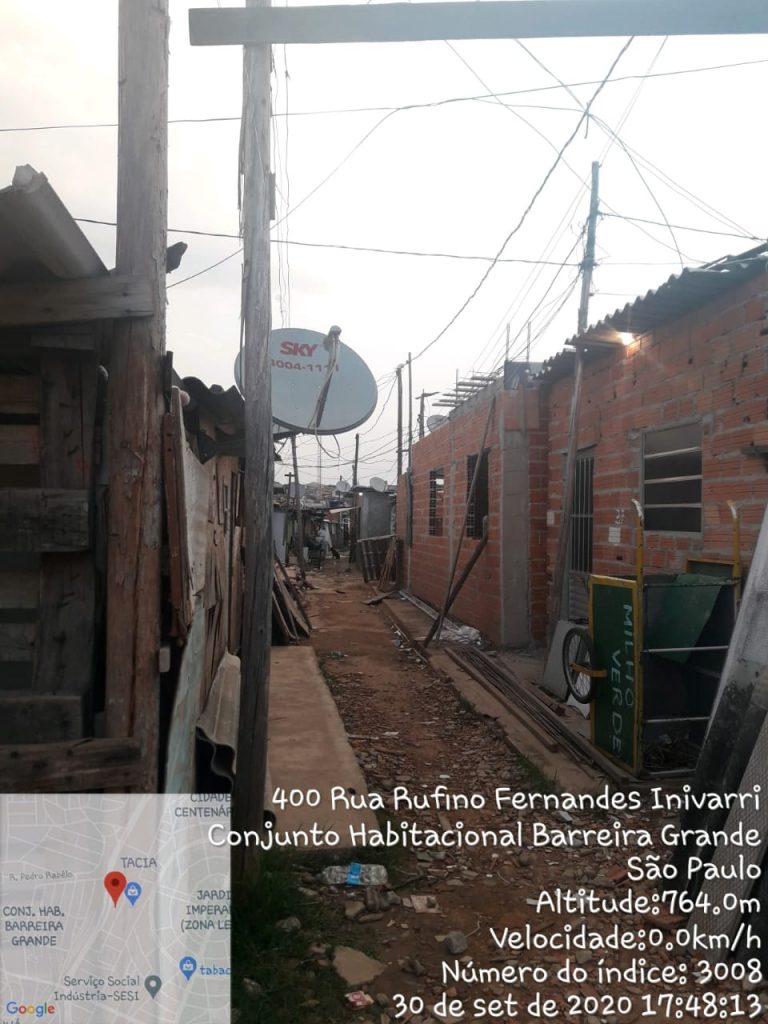
Photos by: Marilene Ribeiro de Souza e Sheila Cristiane Santos Nobre


